Strategic Leadership and Management
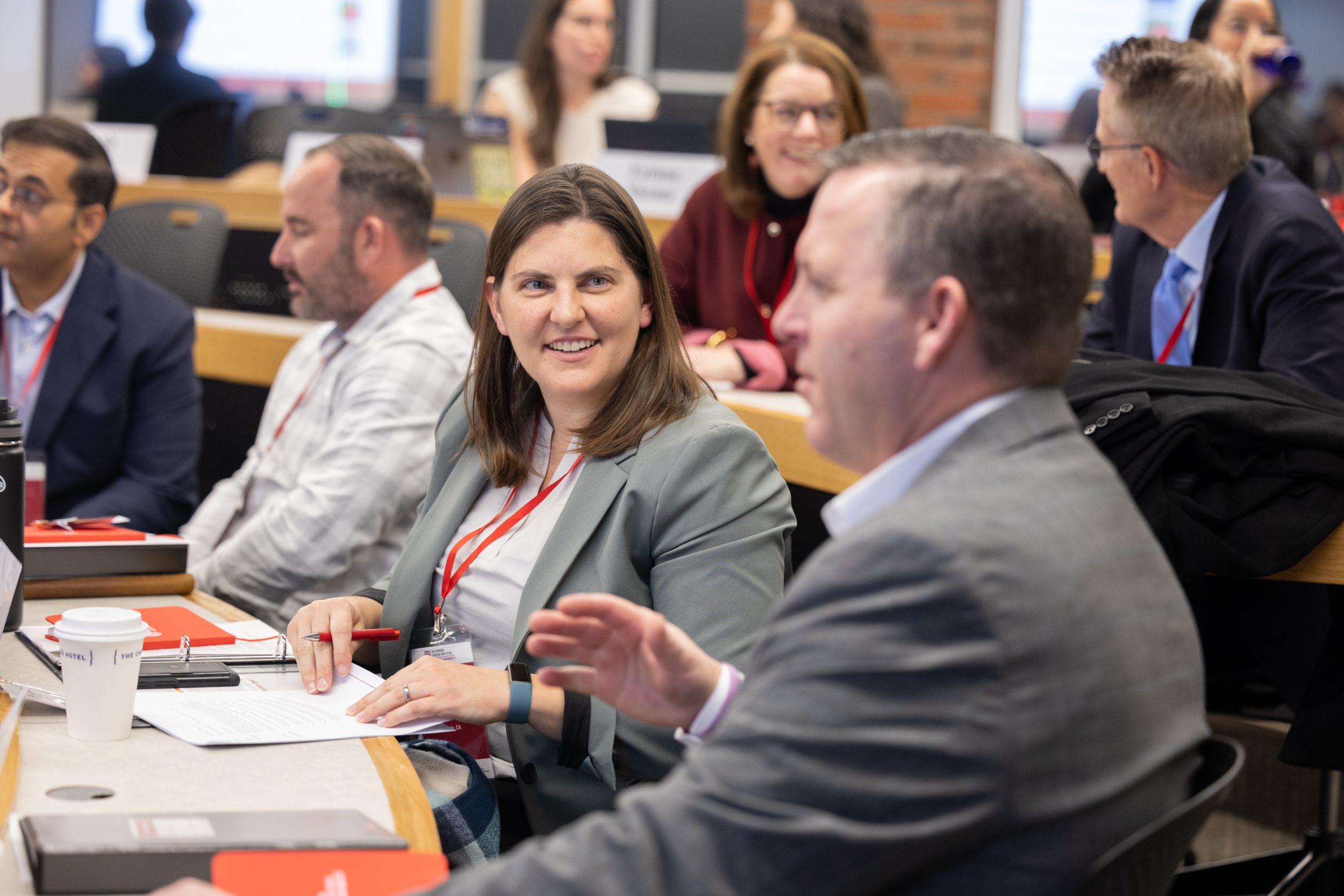
Program for New Mayors: First 100 Days
Offering leadership training to a select group of recently elected mayors to help them excel in their new role, this program supports U.S. mayors to bring positive change to their communities.
Newly elected mayors require a unique set of tools to be successful during their transition and first year in office. The Program for New Mayors: First 100 Days, developed by the Bloomberg Center for Cities at Harvard University in collaboration with the Institute of Politics at Harvard University and the U.S. Conference of Mayors, anchors on two key themes: Becoming Mayor and Building the Team and Coalitions.
Harvard professors Kimberlyn Leary and Mitchell Weiss serve as Faculty Co-Chairs of the program.
Participation
Thanks to a generous gift from Bloomberg Philanthropies, participation for mayors is fully funded, including tuition, accommodation, most meals, and airfare.
New mayors gain insights and receive expert advice for overcoming common obstacles and making the most of the transition and first year in office. Attendees also benefit from discussions with current and former mayors who share their expertise.
Select cities can also participate in the Transition Term Fellowship program, offered in collaboration with the Taubman Center for State and Local Government at Harvard Kennedy School, which places teams of Harvard graduate students in mayoral transition teams. Transition Term Fellows add critical capacity during the two weeks leading up to inauguration.
Eligibility
Candidates for mayor or newly elected mayors are encouraged to reach out to us via the Contact Us form to learn more. Please include the name of your city, population, election date, and expected start date. Mayor-elects will be eligible to participate.
The Program for New Mayors helped me understand that the first 100 days are crucial for laying the foundation of a successful administration. We're now applying that insight daily as we build the Parker administration, making every moment count.Mayor Cherelle Parker
Philadelphia, Pennsylvania
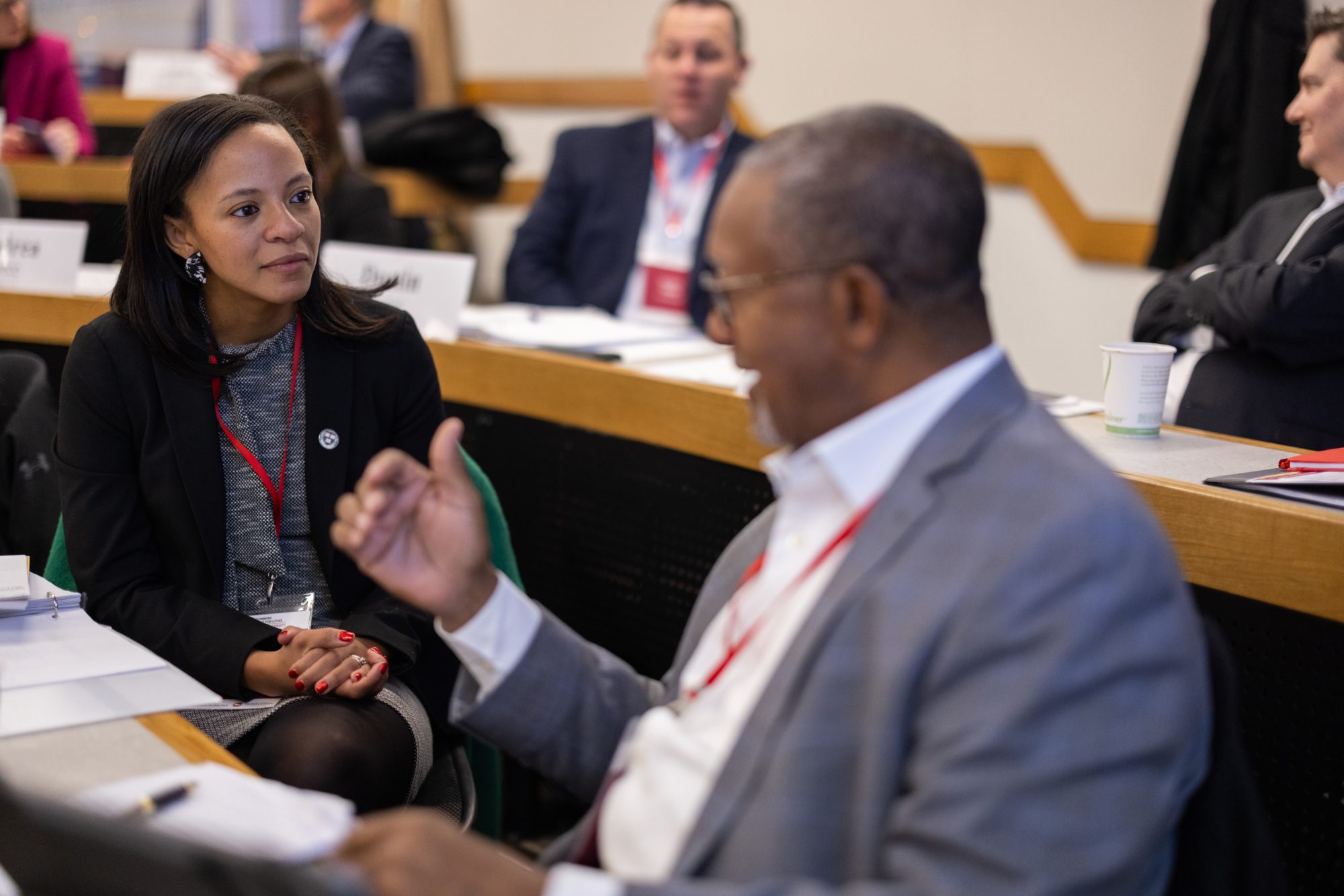
Alexandria, Virginia Mayor Alyia Gaskins (left) and Hampton, Virginia Mayor Jimmy Gray exchange insights during a classroom session of the Program for New Mayors in December 2024.
I’ve taken a more thoughtful and deliberate approach to how I exercise power in my city, and what types of power I employ in different situations.Mayor Jim Penniman-Morin
Cedar Park, Texas
88%
of surveyed participants reported improvements in their ability to identify and utilize their influence to advance their mayoral agenda.
Planning for the Future, Managing the Unexpected
Fostering a Culture of Teamwork and Engagement
Secrets of Successful Mayoral Transitions
Planning for the Future, Managing the Unexpected
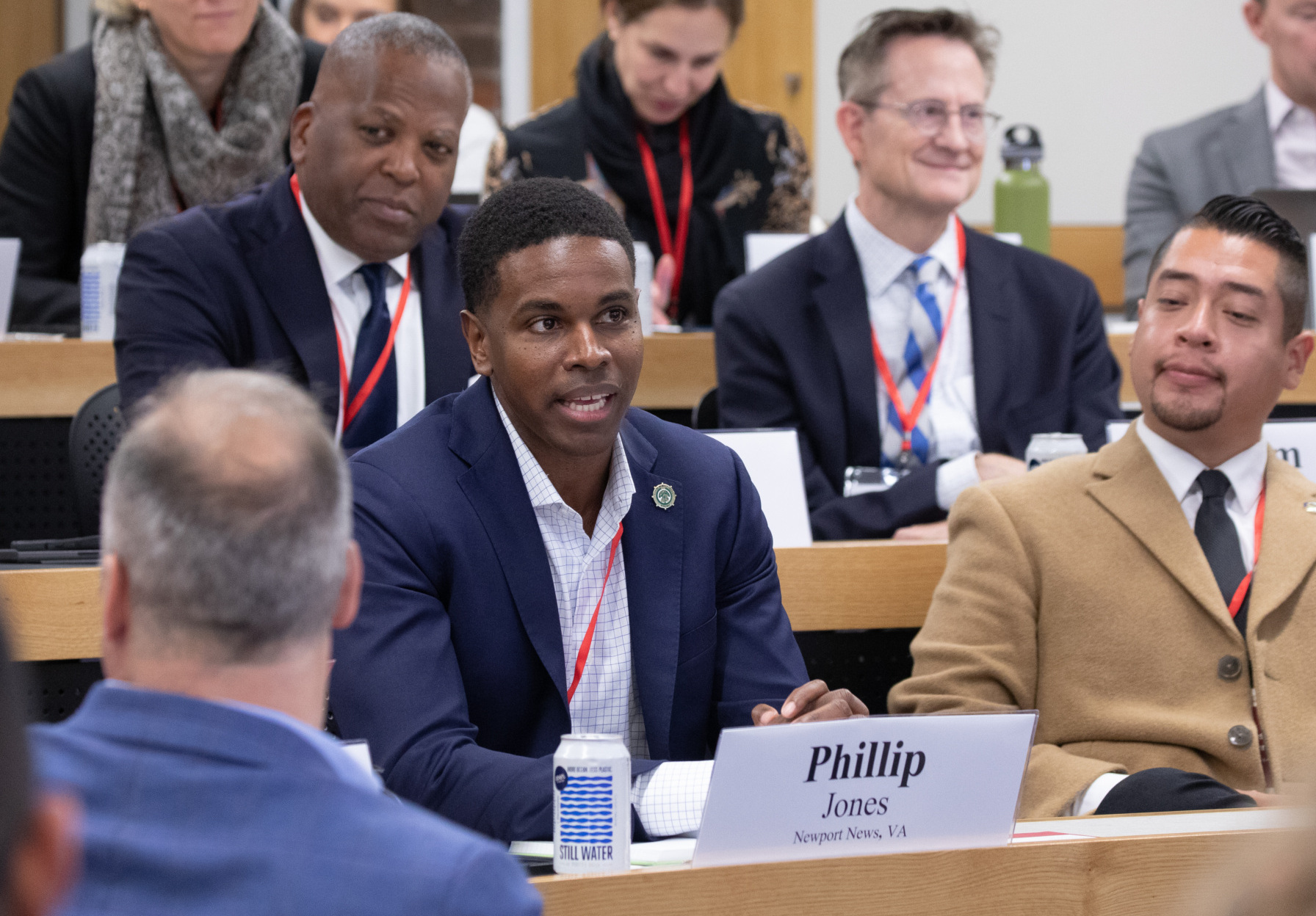
Newport News, VA – Mayor Phillip Jones
Planning for the Future, Managing the Unexpected
After a shooting at a local school four days before his inauguration, Mayor Phillip Jones pivoted his 100-day plan to focus on improving school safety and well-being. He drew on lessons from the Program for New Mayors to build strong relationships within the school district, even without formal oversight. He also managed his time strategically, using an audit tool introduced during the program. It allowed him to compare how he intended to spend time with his actual time allocation.
In addition to leading in crisis, the mayor created two positions, Chief Innovation Officer and a federal lobbyist position, to further his vision of attracting more investments to the city, fostering economic development, prioritizing public safety, and building alliances within and beyond the city council to enact transformative change.
Fostering a Culture of Teamwork and Engagement
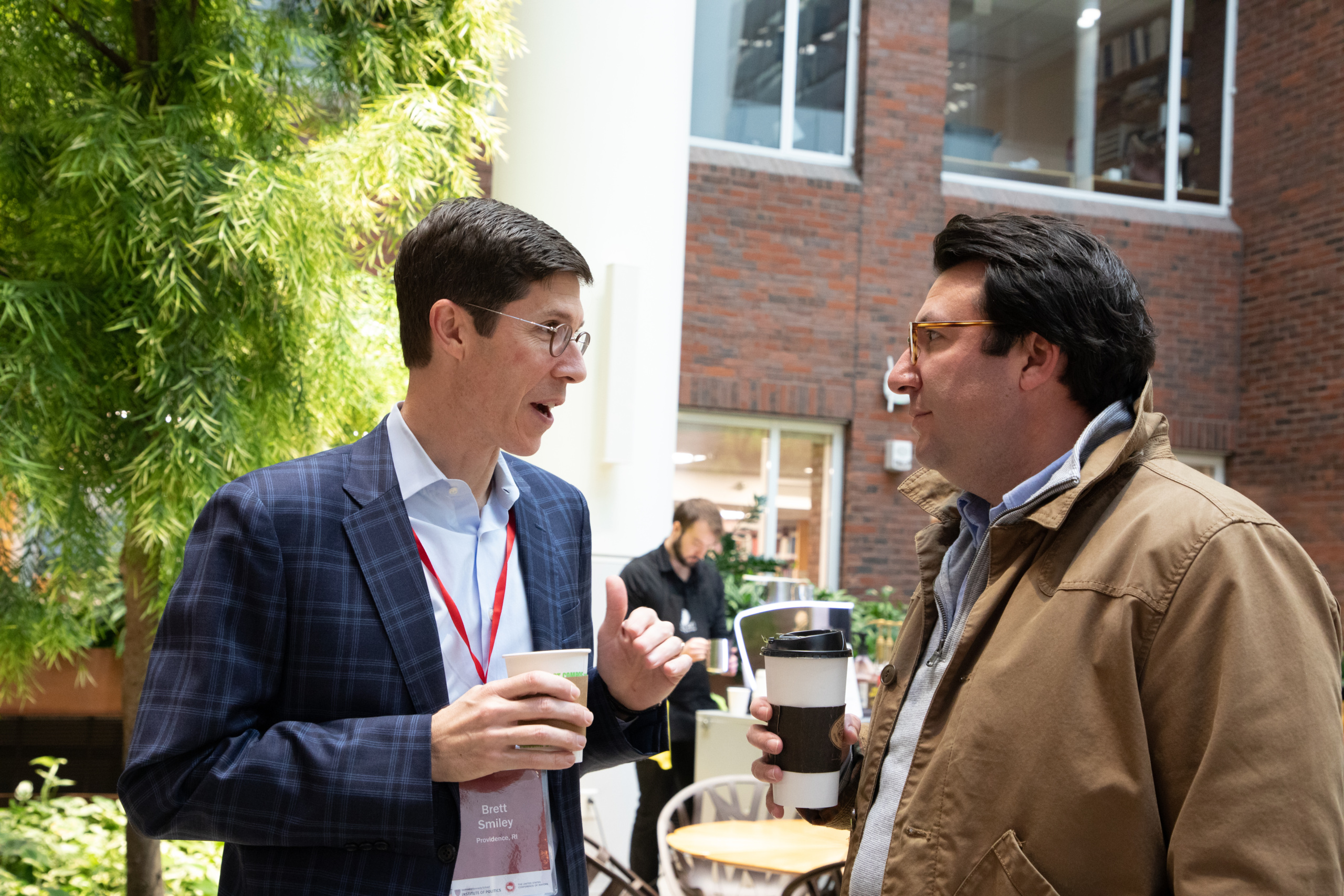
Providence, RI – Mayor Brett Smiley
Fostering a Culture of Teamwork and Engagement
Mayor Brett Smiley ran on a platform of improving city services, which cannot be achieved without a committed workforce. He drew on lessons from the Program for New Mayors to use his first days in office to not only build his team but also make connections with knowledgeable staff from the prior administration. During his first week in office, he put a plan in motion to boost morale among city hall workers. He started by changing all the lightbulbs and cleaning the carpets. He also made sure to visit each office in the building to get to know staff. “At first, it felt like a shock to people, but now it feels a little more normal to pop into the finance office and chat with folks,” Mayor Smiley said.
We heard really positive feedback from staff in week one that city hall is a much more pleasant place to be now. These little gestures can make people feel more valued and appreciated.Mayor Brett Smiley
Providence, RI
Secrets of Successful Mayoral Transitions
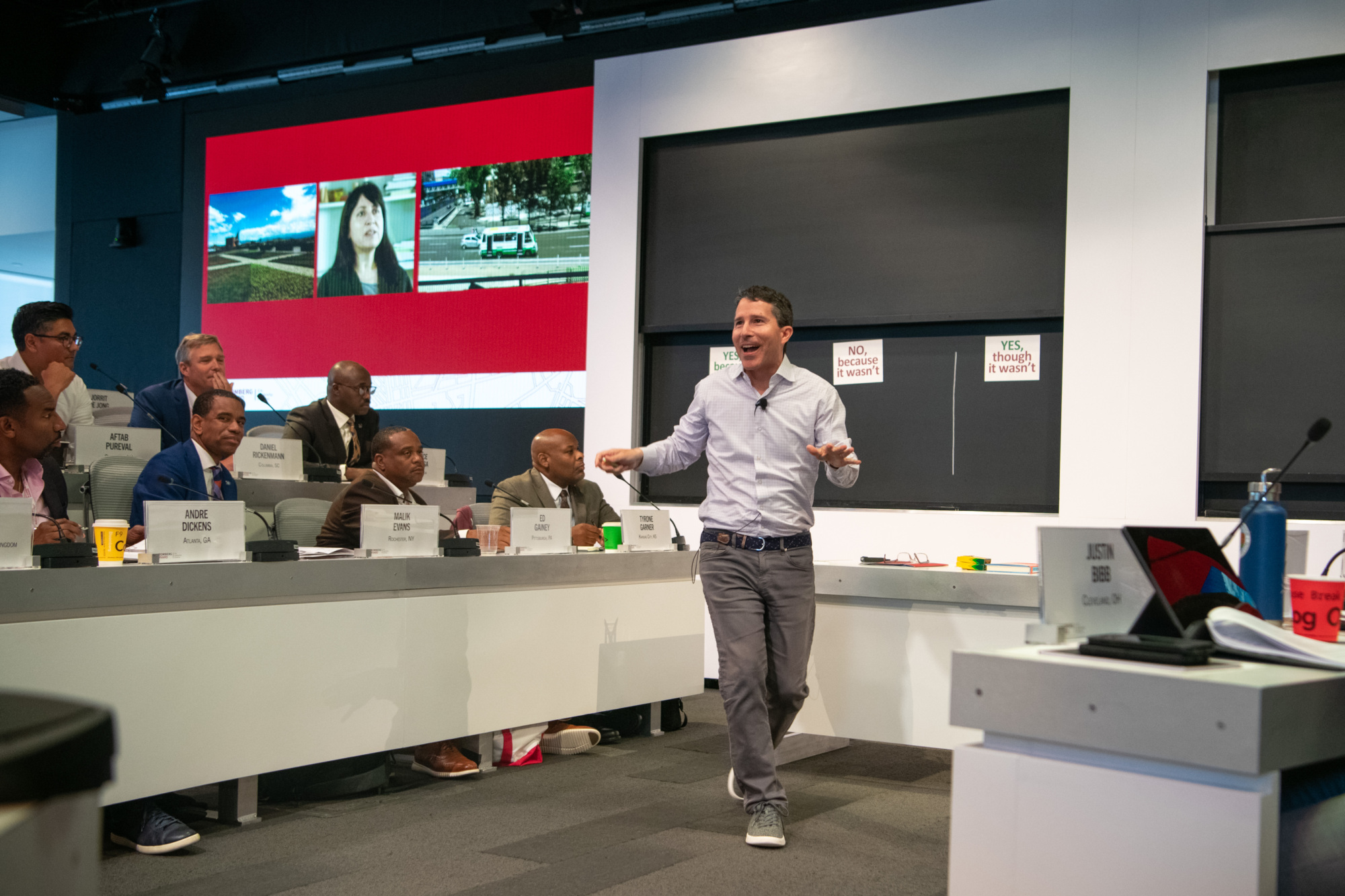
Leadership Q&A
Secrets of Successful Mayoral Transitions
Mitchell Weiss teaches public entrepreneurship at Harvard Business School and serves as a Faculty Co-Chair of the Program for New Mayors: First 100 Days. Weiss served as Chief of Staff to Boston Mayor Thomas Menino, as well as a transition adviser to Boston Mayor Michelle Wu, and is author of “We the Possibility,” a book about how local leaders can use more experimental approaches to innovate.
“One hundred days into my first term as a new mayor, reporters asked me: ‘What have you accomplished?’ I said, ‘We built a team.’ They said, ‘Yeah, yeah, yeah, but what did you accomplish?’ And I said, ‘We built a team.’ They couldn’t wrap their heads around my answer. The fact is, the team we built in the first hundred days made possible everything we achieved in the 3,000-plus days that followed.”Michael R. Bloomberg
108th mayor of NYC and founder of Bloomberg LP and Bloomberg Philanthropies
Featured Resource
This teaching case presents the stories of three leaders who took the helm under varying circumstances.



